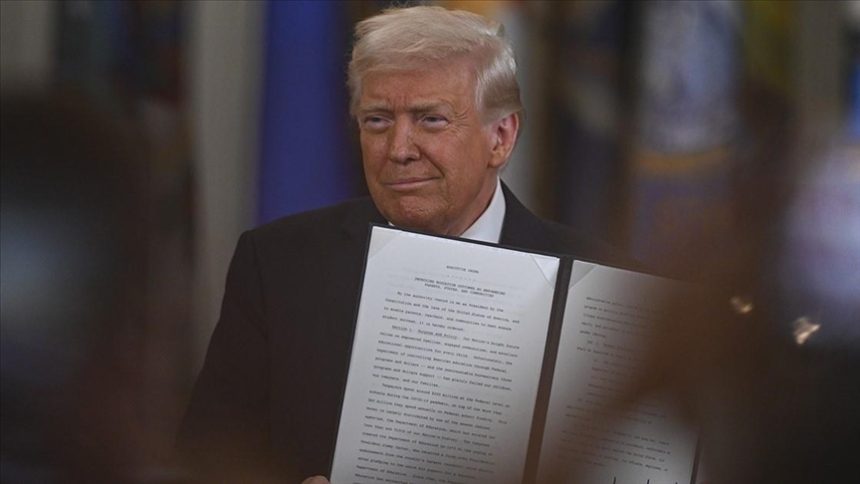In a move that could introduce significant economic headwinds for several Middle East and North Africa countries, former US President Donald Trump has announced plans to impose steep tariffs on imports from six Arab nations if re-elected. The proposed measures target Algeria, Iraq, Lebanon, Libya, Syria, and Yemen, with Syria facing the most severe potential penalties.
By the Numbers
The proposed tariffs are directly linked to what Trump’s campaign deems significant currency devaluation against the US dollar since 2019. The targeted nations have experienced profound economic challenges, reflected in their currency performance:
- Syrian Pound (SYP): 99.8% devaluation
- Lebanese Pound (LBP): 98% devaluation
- Yemeni Rial (YER): 75% devaluation
- Libyan Dinar (LYD): 70% devaluation
- Algerian Dinar (DZD): 25% devaluation
- Iraqi Dinar (IQD): 20% devaluation
- Proposed Tariff on Syria: Up to 200%
The Rationale Behind the Tariffs
The plan is part of a broader protectionist trade policy that includes a baseline 10% tariff on all imports into the United States and a potential 60% tariff on Chinese goods. The specific focus on the six MENA countries stems from the belief that their currency devaluations give them an unfair trade advantage. By imposing countervailing duties, the proposed policy aims to offset the price effects of these devaluations, a move that critics argue fails to account for the complex reasons behind these economic crises, including conflict, political instability, and existing sanctions.
Syria and Lebanon Face Harshest Potential Impact
While all six countries would feel the pressure of new tariffs, Syria is singled out with a potential tariff rate as high as 200%. This punitive measure reflects the catastrophic 99.8% collapse of the Syrian pound amid a prolonged civil war and international sanctions. Similarly, Lebanon, which has seen its pound devalue by 98% during a crippling financial crisis, would face severe consequences. For economies already on the brink, such tariffs would drastically increase the cost of any goods destined for the US market, effectively shutting them out and worsening their economic isolation.
Economic Implications for the Broader Region
For nations like Iraq, Libya, and Yemen, the proposed tariffs would add another layer of economic strain on top of ongoing reconstruction efforts and humanitarian crises. Higher costs on exports could stifle nascent industries and reduce crucial foreign currency inflows. The measures could also lead to retaliatory actions and disrupt fragile regional supply chains, increasing import costs for essential goods and potentially fueling inflation and social unrest across the affected countries.
Looking Ahead
The announcement introduces a significant element of uncertainty for the economic future of the targeted nations. For the MENA tech and startup ecosystem, the downstream effects could be considerable. Increased economic instability and a more challenging trade environment could deter foreign investment and make cross-border operations more difficult. Startups reliant on imported hardware or components may face rising costs, while the overall economic climate could dampen consumer spending and slow market growth. Investors and founders across the region will be closely monitoring the US political landscape as these proposed policies could reshape the economic playing field for some of MENA’s most fragile markets.
Source: Anadolu Agency














